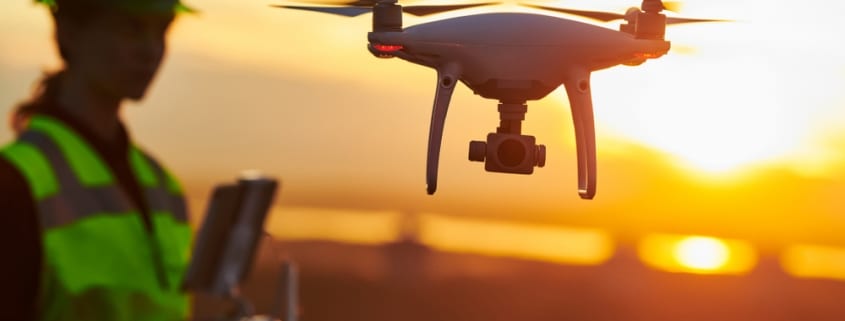Drone Accidents Happen – Make Sure You’re Covered
With over 100,000 registered commercial drone operators in the US, it’s not surprising that the use of drones has transformed many industries. Houses with aerial photographs sell 68% faster than ones without. Drone usage on construction sites has increased safety by 55%. Because drones can cover large areas quickly and provide access to locations otherwise not easily reached, they’re increasingly being deployed for tasks like agricultural inspections and search-and-rescue missions. Drones have impacted everything from humanitarian aid and weather forecasting to wedding videography and food delivery.
Commercial drone use also comes with risks, such as property damage or physical injury caused by the drone. While the FAA doesn’t require commercial drone operators to carry insurance, it’s best to make sure you are properly covered. After all, a drone is a big investment. However, there’s a good chance your business insurance doesn’t cover your drone (or you contracting the use of someone else’s drone). Most commercial general liability policies contain an aircraft exclusion, and in Philadelphia Indem. Ins. Co. v. Hollycal Prod., Inc., the court held that “aircraft” included drones.
If you plan to or are already operating a drone through your business, check with your insurance agent regarding your current coverage. In addition to drone liability insurance, which protects your business in the event of injury or damage caused by the drone, you may also want hull insurance, which covers the drone itself and any special equipment it has on-board, like cameras or sensors. The cost of commercial drone insurance may vary based on the circumstances under which you plan to use the drone, though the prices are generally reasonable and are minimal compared to how much you could end up paying for a liability claim if you don’t have adequate coverage.
Do you have questions about commercial drone insurance? Contact us today!



